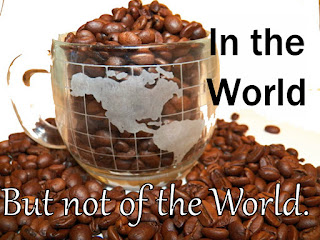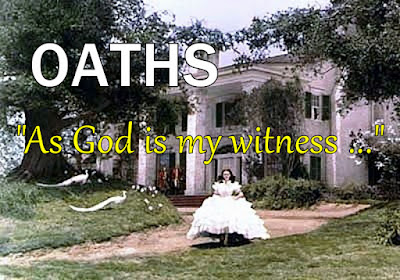The Bible and Immigration I
Micah 6:8
"He has declared to you, man, what is good; and what does Jehovah require of you, but to do justice, and to love mercy, and to walk humbly with your God?"
Joe Green, Sr., A Literal Translation of the Bible, 1985
(I'll be using this translation through the duration of this study.)
The increasing number of unaccompanied children and youth from Central America entering the United States under the William Wilberforce Trafficking Victims Protection Reauthorization Act of 2008 has been creating of buzz of conversation at coffee hour at our church. The purpose of this study and discussion is not to tell you how to think, but rather to provide a biblical view point.
As United Methodist, we believe that Scripture enlightened by the Holy Spirit is our primary source for forming and influencing our world view and response to the issues we face. So, in this post, I'd like to explore with you what the Bible has to say on the topic of immigration and immigrants (referred to in scripture as aliens, strangers and sojourners). To kick this off, I'd like to start with looking at what God expects of us in our relationships with others and with God.
There are several passages in the Bible that tell us that we cannot be righteous in the sight of God unless we are in right relationship with other human beings and in right relationship with God. In Matthew 25:31-46, Jesus teaches that our acts of mercy and justice are seen as having been done to Jesus. He says, "... Truly, I say to you. Inasmuch as you did it to one of them, the least of My brothers, you did it to Me." (Matthew 25:40)
The least: those who are oppressed and disenfranchised; those who have been denied access to and protection by the power structure; those who do not have access to resources to meet basic human needs; those who have become invisible as they are robbed of their basic human rights.
The least are important to God.
"He has declared to you, man, what is good; and what does Jehovah require of you, but to do justice, and to love mercy, and to walk humbly with your God?"
Note the word "and" in this requirement from God. It is not "or" or "except in this particular instance." Our right relationship with our fellow human beings (do justice and love mercy) as well as the daily surrendering of self to God, are needed to do what is good.
To do justice is be concerned that each person receives a share of the power and resources form society. It is to work for equity and the right treatment of the oppressed. Justice is an act of love where we share the blessings and the grace that God has given to us.
To love mercy is to desire, to choose to share ourselves, our power and resources with others. A love for mercy springs from the knowledge that we are loved by God, and through Jesus Christ, have been freed to love others. It is expressed through our personal involvement with those in need through acts of aid, relief and comfort.
Read Luke 10:25-37, the "Parable of the Good Samaritan."
"He has declared to you, man, what is good; and what does Jehovah require of you, but to do justice, and to love mercy, and to walk humbly with your God?"
Joe Green, Sr., A Literal Translation of the Bible, 1985
(I'll be using this translation through the duration of this study.)
The increasing number of unaccompanied children and youth from Central America entering the United States under the William Wilberforce Trafficking Victims Protection Reauthorization Act of 2008 has been creating of buzz of conversation at coffee hour at our church. The purpose of this study and discussion is not to tell you how to think, but rather to provide a biblical view point.
As United Methodist, we believe that Scripture enlightened by the Holy Spirit is our primary source for forming and influencing our world view and response to the issues we face. So, in this post, I'd like to explore with you what the Bible has to say on the topic of immigration and immigrants (referred to in scripture as aliens, strangers and sojourners). To kick this off, I'd like to start with looking at what God expects of us in our relationships with others and with God.
There are several passages in the Bible that tell us that we cannot be righteous in the sight of God unless we are in right relationship with other human beings and in right relationship with God. In Matthew 25:31-46, Jesus teaches that our acts of mercy and justice are seen as having been done to Jesus. He says, "... Truly, I say to you. Inasmuch as you did it to one of them, the least of My brothers, you did it to Me." (Matthew 25:40)
The least: those who are oppressed and disenfranchised; those who have been denied access to and protection by the power structure; those who do not have access to resources to meet basic human needs; those who have become invisible as they are robbed of their basic human rights.
The least are important to God.
"He has declared to you, man, what is good; and what does Jehovah require of you, but to do justice, and to love mercy, and to walk humbly with your God?"
Note the word "and" in this requirement from God. It is not "or" or "except in this particular instance." Our right relationship with our fellow human beings (do justice and love mercy) as well as the daily surrendering of self to God, are needed to do what is good.
To do justice is be concerned that each person receives a share of the power and resources form society. It is to work for equity and the right treatment of the oppressed. Justice is an act of love where we share the blessings and the grace that God has given to us.
To love mercy is to desire, to choose to share ourselves, our power and resources with others. A love for mercy springs from the knowledge that we are loved by God, and through Jesus Christ, have been freed to love others. It is expressed through our personal involvement with those in need through acts of aid, relief and comfort.
Read Luke 10:25-37, the "Parable of the Good Samaritan."
- How does the Samaritan do justice and love mercy?
- In context of the many social issues that we are faced by, name some of your "neighbors" whom God is laying on your heart.
Please share the insights you have gained from the exploration of Luke 10:25-37.
I would also suggest, that you look into the underlying cause to the influx of unattended children and youth, human trafficking. I suggest you read:
- The William Wilburforce Trafficking Victims Protection Reauthorization Act of 2008 at www.state.govj/tip/laws/113178.htm
- The United Nations Office on Drugs and Crime, "Global Report on Trafficking in Persons, 2012;" search the title, and it will take you to the site.
Please share other resources that will help us understand the problem of human trafficking, especially in Central America.



Comments
Post a Comment